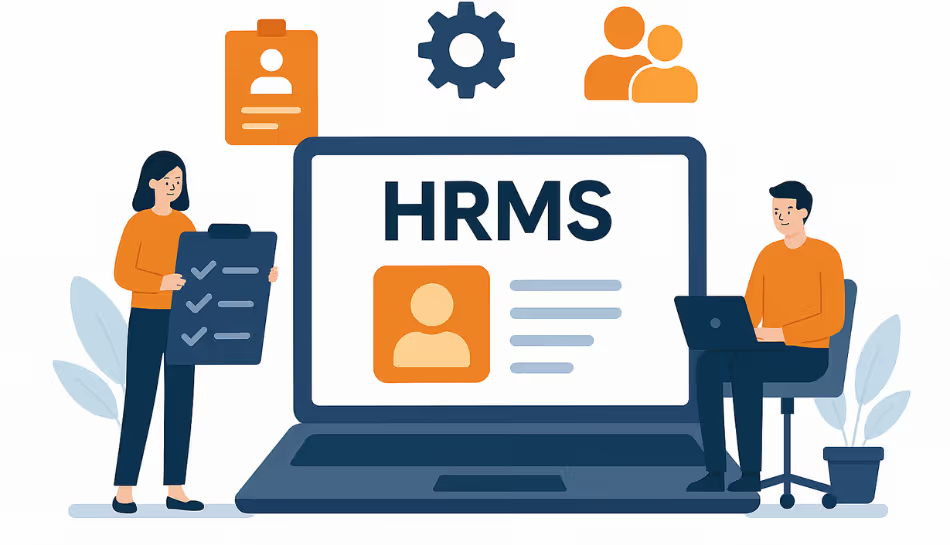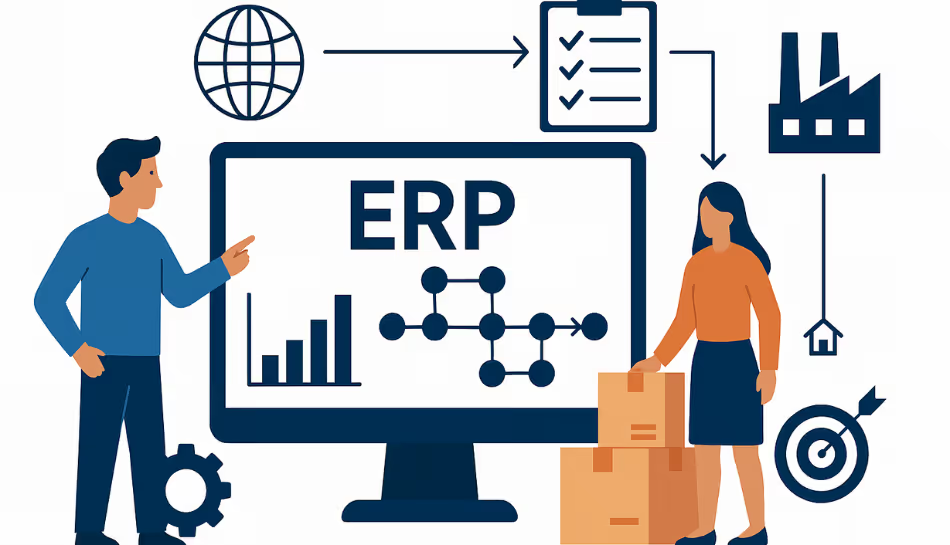As a small business owner, managing HR tasks, like tracking attendance, handling payroll, and keeping employee records, can quickly eat up your time. But with the right HR software, you don’t need a full HR department to keep things running smoothly.
Modern human resource management systems (HRMS) are built to simplify and automate these tasks, helping you stay compliant and focused on growing your team and business.
Let’s explore what HR software for small businesses does, its benefits, and some of the best options to consider in 2025.
What is HR Software?
Human Resource software is a digital system that helps businesses manage employee data, payroll, attendance, hiring, and more. It’s also referred to as:
- HRMS (Human Resource Management System)
- HRIS (Human Resource Information System)
- HRIS (Human Resource Information System)
For small businesses, these tools are often cloud-based, easy to use, and designed to scale as your team grows.
Why Small Businesses Need HR Software
Even with just 5 to 50 employees, HR tasks can become overwhelming. Here's how human resource management tools help:
- Save Time
No more juggling spreadsheets or chasing paper documents. Everything, payroll, attendance, leave requests, is in one place and easy to access. - Improve Accuracy
Automated calculations reduce errors in salaries, taxes, and compliance filings. - Stay Compliant
Many HR software for small businesses are built to comply with local laws like PF, ESI, and labor regulations in India. - Boost Employee Satisfaction
Employees can apply for leave, view payslips, and update their details via self-service portals, leading to faster communication and fewer errors.
Key Features to Look For
When choosing the best human resources software for small business, look for features like:
- Employee onboarding
- Attendance and leave tracking
- Payroll processing
- Tax and compliance support
- Performance reviews
- Employee self-service
- Mobile access
Bonus: Integration with your accounting or ERP system makes HR even more seamless.
Best HR Software for Small Businesses (2025 Picks)
Here are some top-rated human resource management solutions ideal for small teams:
1. Bigsun HR Suite
A tailor-made HRMS software for small business, Bigsun’s HR Suite offers everything from employee onboarding and attendance to payroll and appraisals. It’s easy to use, affordable, and integrates with Bigsun’s ERP and finance modules.
Best for: Small and medium Indian businesses
Strengths: Payroll automation, statutory compliance, employee portal
2. Zoho People
Part of the Zoho ecosystem, this cloud-based HR tool is ideal for growing teams. It includes performance management, shift scheduling, and leave tracking.
Best for: Remote teams and startups
Strengths: Custom workflows, strong integrations, mobile app
3. Keka HR
Keka is designed with a modern UI and offers detailed employee lifecycle tracking, payroll, and performance management.
Best for: Fast-growing companies
Strengths: Payroll accuracy, employee engagement tools
4. GreytHR
One of the oldest players in India, GreytHR simplifies core HR and payroll functions. It offers compliance tools and employee document storage.
Best for: Traditional businesses and service companies
Strengths: Cost-effective, compliant, reliable
5. BambooHR
While priced higher, BambooHR is popular worldwide for its intuitive design and robust features including onboarding, e-signatures, and employee satisfaction surveys.
Best for: Businesses with international teams
Strengths: User experience, people analytics
Final Thoughts
Managing HR doesn’t have to be overwhelming, even for small businesses. The right human resources software takes the pressure off admin work, improves employee satisfaction, and ensures you meet all compliance needs without extra staff.
If you're still using spreadsheets or manual processes, now is the time to explore affordable, smart HR management solutions built just for small teams.



